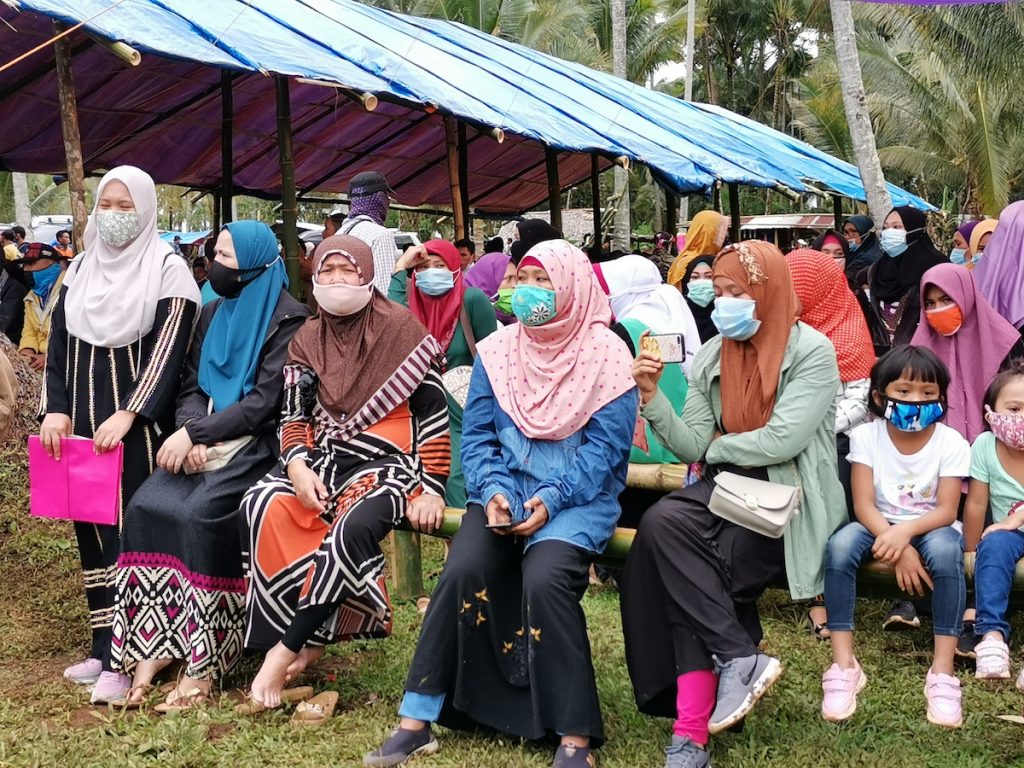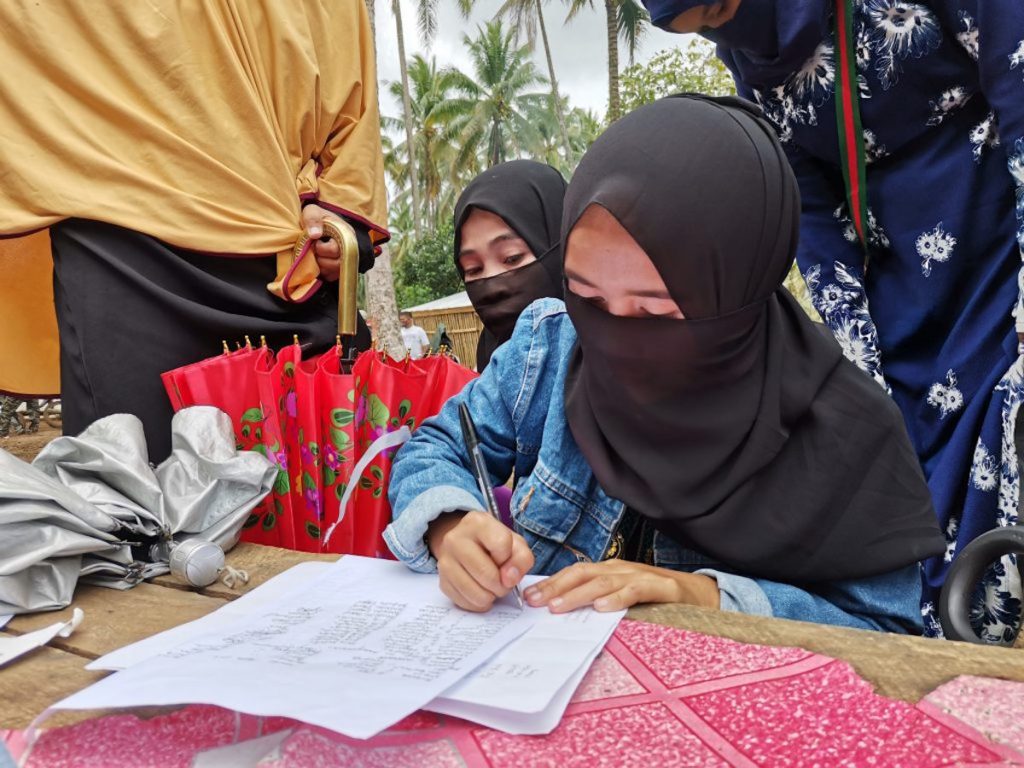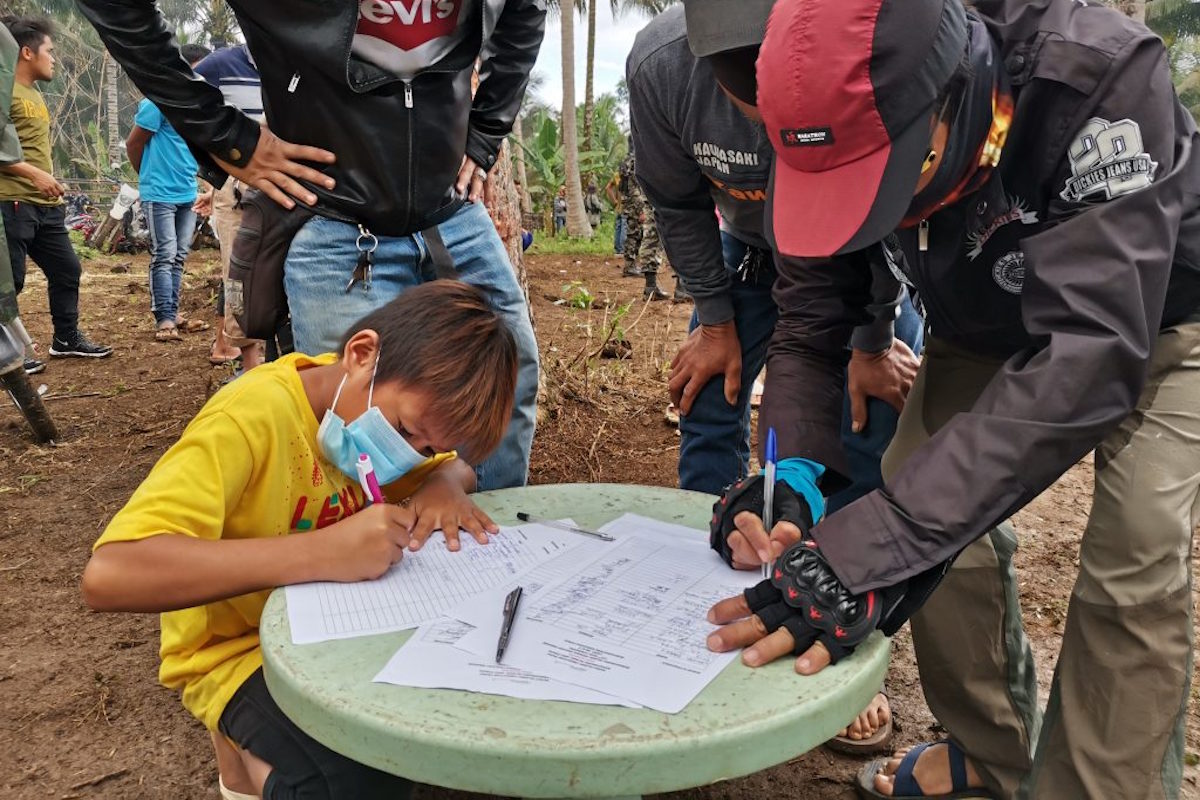He was 15 years old when he started carrying a gun instead of a pencil. He did not go to school, but he was schooled in the ways of war.
Anowar Mapandi, now 46, did not finish grade school. He had to flee to the mountains of Lanao del Norte province to hide.
In 2008, Mapandi, a brigade commander of the Bangsamoro Islamic Armed Forces, led more than a hundred fighters who attacked the towns of Kauswagan and Kolambogan.
At least 31 people, most of whom were civilians, died and several structures were razed to the ground.
Now, 12 years after the rebel attack, Mapandi’s only child, an 11-year-old boy, is dreaming of becoming a policeman.
“I am supporting him,” said the former rebel leader. “That is why I am happy of what our life is becoming now because of the [Bangsamoro Organic Law].”
The Bangsamoro Organic Law, or the Organic Law for the Bangsamoro Autonomous Region in Muslim Mindanao, provides for the establishment of the autonomous political entity known as the Bangsamoro Autonomous Region.
The law is the result of a 2014 peace agreement between the Philippine government and the rebel Moro Islamic Liberation Front, which has been waging a war of independence for almost five decades.
Under the deal, the rebels have to cease the armed struggle in exchange for a free hand to govern their own autonomous region in the southern Philippines.

Hope for the future
On Nov. 2, Mapandi led his comrades and their families in a gathering in a former war zone, about 22 kilometers from the national highway in Lanao del Norte.
Instead of brandishing high-powered firearms, the men brought food for a picnic with their families.
Mapandi’s former commander in the 2008 attack arrived with sacks of rice from the Office of the Presidential Adviser on the Peace Process.
“I am here today with no firearms and no camouflage uniform because I am no longer an enemy of the government,” said Abdullah Macapaar, now a member of parliament of the Bangsamoro Autonomous Region in Muslim Mindanao.
“I am here today, not to wage war against the government but to bring projects and development for our area,” he said.
Macapaar, formerly known as Commander Bravo, announced that the former rebel stronghold, will now receive about US$1.7 million worth of projects.
The projects will support the “normalization program” under the peace deal as part of the government’s commitment to help spur economic activity in former rebel strongholds.
“Without peace, there is no development,” said Macapaar, as he called on his former fighters “to strongly unite against the enemy of peace.”
“I am still a warrior,” he said, “but now a warrior for peace.”
Confidence-building measures
The gathering, facilitated by the faith-based civil society organization Pakigdait, Inc., aimed to serve as a “confidence-building measure” to strengthen relationships among former rebel leaders and the community.
“This activity aims for an inclusive, unified, and peaceful Camp Bilal,” said Pakigdait Director Abel Moya.
Bilal is an area in the border of the provinces of Lanao del Norte and Lanao del Sur where several rebel camps were located.
Col. Charliemagne Batayola, deputy commander of the Philippine Army’s 2nd Mechanized Infantry Brigade, said government troops are also visiting the area but not to wage war.
“We come here as your friends because we, the rebels and the military, both love peace and our communities,” Batayola addressed the crowd of about a thousand former rebels.

Col. Nolie Anquillano, deputy brigade commander of the Army’s 103rd Infantry Brigade, appealed for help in battling extremist groups that continue to sow terror in some parts of Mindanao.
“I hope we can convince our brothers not to join them because peace is not only an interest of the Philippine Army but also of the [Moro Islamic Liberation Front] and the whole nation,” said the military official.
Mapandi said he is “happy” with his life now. “I can go down to the town proper without fear and without guns,” he said.
He said he does not want his son to follow his footsteps.
“I don’t want him to be like me. I want him to finish school and become a policeman like what he wanted to be,” said the former rebel leader.







